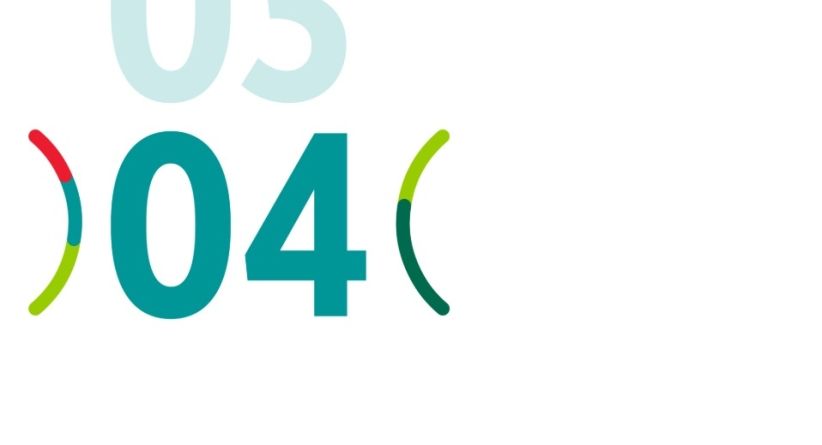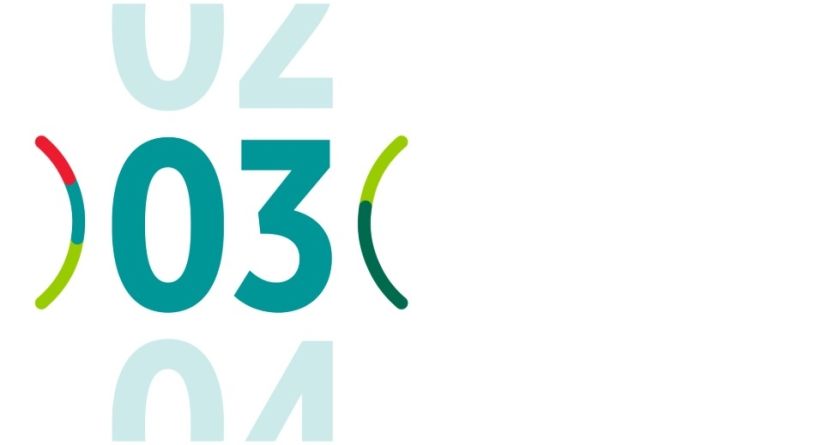
The battle of ideas : who will win the world war ?
Behind the conflict in Ukraine are a number of different wars, areas of confrontation and time frames. Companies must now discern these areas and time frames as they seek to outline their foreign policy: each could one day materialise as a risk or an opportunity.
Ideologically speaking, it’s clear that the war is already global in scale. This has been true more or less from the outset, with all participants contributing to the war of ideas. But this battle will rumble on long after the guns have fallen silent: clashes of ideas play out over much longer timescales than military conflicts. Furthermore, winning the war on the ground doesn’t necessarily mean you’ve won the war of ideas. Lastly, we need to be aware that this war of ideas will also play a role in shaping our investment universe by influencing the emerging global geopolitical equilibrium, whatever the short- and long-term military situation and however weakened Russia might be economically and politically in the short and long term.
From war to questions over the role of the West
In a way, the ideological dimension of the conflict as the Kremlin sees it – a proxy war between the West and the rest of the world, with Moscow as the “pinnacle”1 – is slipping from Russia’s grip as it becomes more global in nature. In reality, while plenty of intellectuals and political leaders in non-Western countries have seized the opportunity to highlight NATO’s putative responsibility for provoking this war and, above all, to broaden the debate by calling for a new world order that is no longer the preserve of the West, they have nevertheless still overwhelmingly condemned Russia’s intervention.
1 “This war is a kind of proxy war between the West and the rest – Russia being, as it has been in history, the pinnacle of ‘the rest’ – for a future world order”,. S. Karaganov, interview in The New Statesman, April 2022.
The global ideological battle lines have, it seems, been drawn: responsibility for the conflict, and even the legitimacy to engage in it, constitute the primary front line, with the West’s role in the world acting as a secondary front line. It is in light of this ideological interpretation of the war that the effects of enlarging NATO to include Sweden and Finland must be understood. Note also that, in many Western European countries, it is on this issue of responsibility for the conflict that the connection is being made between domestic policy and geopolitics. Indeed, now that the psychological shock of the first few months and the violence they unleashed has abated, the debate over the causes of the war is becoming a powerful driver of growing conflict in public opinion, reflected and amplified by the polarising efforts of anti-establishment parties.
Not a united anti-Western bloc but rather a nebulous ideology
At this stage, however, no united bloc has emerged behind an anti-Western leader. This highlights the failure of both Russia and China to take on this role despite having coveted such leadership for the past thirty years. But the story is clearly not over yet…
From the outset of the conflict, Beijing has adopted a stance designed to avoid the threat of economic sanctions while aligning itself ideologically with Russia against the West. While this strategy has been described as ambiguous, by adopting this stance China has been able to secure a number of strategic advantages: it has avoided a clean economic break with the West – something it would certainly not be able to withstand at the present time – and cashed in on Russia’s ideological capital. It has chosen the path of patience: avoid war and let events work to its advantage. In so doing, it has taken a leaf right out of Sun Tzu’s book: the art of war is subduing the enemy without a fight. Beijing has theorised about global ideological warfare – but only after the United States and the USSR! – by drawing on the concept of the “Three Warfares”: public opinion warfare (rallying others to one’s cause and appealing to the emotions), psychological warfare (demoralising the enemy’s armed forces and undermining trust between enemy governments and their people) and legal warfare (using or making laws to dissuade, constrain or punish)2.
This hijacking and institutionalised use of international law to try to shift the geopolitical balance of power has also given rise to a concept that originally emerged in US neoconservative circles but has in recent years taken on huge strategic importance across the board: lawfare3. As Amélie Férey spells out in an IFRI study, lawfare currently manifests itself in four main forms: “adapting legal constraints by reinterpreting existing standards; issuing new standards by means of legal lobbying in the service of a power strategy; mobilising the effects of law to force a party to act a certain way through strategic judicialisation; and using the law as a reputational weapon”.
3 https://www.ifri.org/sites/default/files/atoms/files/ferey_guerre_des_normes_2022.pdf
The pitfalls of lawfare
Strengthened by the power of social media, which have made the global intellectual space both fragile and “liquid”4, lawfare is also becoming one of the most powerful tools of ideological warfare and thus a de facto source of numerous operational risks for businesses. Lawfare, it must be said, has long kept compliance departments busy, with Russia and China clearly becoming an increasing threat in this space. Indeed, this is one of the clearest indicators of the operational nature of global geopolitics.
4 See the work of sociologist Zygmunt Bauman on the concept of the liquid society.
This war provides an extreme example both of the evolution of lawfare over the past twenty years and of its paradoxes. While the United States has long used lawfare as an instrument of hegemonic domination (via the extraterritorial application of US law and economic warfare), it has now also become a weapon of war for all enemies of the US. Russia’s alternative legal discourse on the right of intervention has become very influential both at home and abroad as Russia seeks to build a post-Soviet space by legally redefining its diaspora. This legal discourse has gradually given substance to the Russian obsession with rewriting history; as long ago as 2008, Russia’s leaders came up with the idea of the “Russky mir”, encompassing the thirty million people who live beyond Russia’s borders but maintain ethnic, legal and cultural ties with Russia. This discourse has taken over the heart of the state and Russian society.
Behind neutrality lies a resolutely multipolar world
The fact remains that, although the war has caused the debate to gather momentum, there is as yet no real anti-Western ideological bloc but rather an ill-assorted collection of various types of regimes, geopolitical strategies and political factions. But many of these have one thing in common, and it’s important to identify this one thing as a clue to the geopolitical scenario that will emerge from current events.
In many countries, we are seeing a convergence between challenges to the West’s right to reshape the world order and a new form of geopolitical non-alignment. Behind a stance of neutrality with respect to the conflict lies support for a multipolar world and the rejection of hegemonic power. In concrete terms, behind the refusal to impose sanctions on Russia lies a global refusal to pick sides – not with the United States, nor with China, nor with Russia. This stance speaks volumes about what is to come because it allows many countries to affirm their ideological independence while continuing to collaborate economically with both the West and its objective and putative enemies. This is the stance adopted by, for example, India and the United Arab Emirates. If this stance escapes sanction over the coming months, that will be a further signal not only of the weakening of Western hegemony but also of the declining power of Western lawfare – in short, the West’s inability to disseminate its values and enforce its legal standards.
Back to the good old heterogenous Areopagus of non-alignment
There are a number of more or less intertwined reasons for this refusal to pick sides, which vary from country to country. At the extreme end of the spectrum, there is a rejection of the West’s two-faced position on human rights: the idea of double standards that runs through post-war history. Part of the critique of democracy is also based on this point. In a similar vein, there is also authoritarian regimes’ distrust of the geopolitics of human rights, which they see as a direct threat. Some countries – especially those with a desire to conquer or with latent territorial conflicts – take an ambiguous position on the idea of territorial sovereignty. Lastly, on top of all this there is the legacy of Third-Worldism and the non-alignment of the 1960s, in the context of which the rejection of the West echoes the rejection of financial capitalism. For example, the interview with Brazil’s Lula in Time magazine is very revealing of what is happening in many Latin American countries, which see the Russian and Ukrainian presidents as sharing responsibility for the war and, above all, blame the United Nations logjam and are calling for reform of global institutions.
Lawfare + revisionist power = weapons that can unleash massive destruction on global governance
So, where are we at? For the time being, the ideological war of which the conflict in Ukraine forms a part is having three effects :
- Firstly, the radical critique of the Western enemy embodied by Russia’s weapons is finding ideological resonance in many countries. And it is not clear that talk of genocide is doing anything to dampen this resonance; indeed, if such talk is seen as a tool of Western lawfare, it could even amplify it.
- Secondly, it is strengthening the geopolitical autonomy of middle powers and thus pushing the world towards greater multipolarity, including in terms of governance and legal standards.
- Lastly, it is reigniting the old debate about the need to overhaul international organisations. This debate will become essential, including as part of any Ukrainian peace process: such a process cannot ignore the need for a more global institutional rethink of the world order
While such a rethink is being called for by many moderate players (including Western legal specialists) and appears essential to ecological transition, we must be in no doubt about the nature of the current moment : it may be true that many countries are keen to see a more multipolar world, but there are also those revisionist powers that want to bring down the world order, assume leadership and even exploit this desire for non-alignment for their own ends.
What is a revisionist power?
In the introduction to his thesis on the Vienna Congress, former US Secretary of State Henry Kissinger invites the reader to think about both the nature of revisionist powers and what their emergence says about the current geopolitical moment. “Every time a power denounces the oppression it sees as being embodied by the existing order or the way that order is legitimised, its relations with other powers take a ‘revolutionary’ turn […]. When this happens, we can no longer speak of accidental events under the existing system. It is the fate of the existing system itself that is at stake. […]. What is unique about a revisionist power is that nothing can reassure its leaders […]. The absolute security to which a revisionist power aspires results in the absolute insecurity of everyone else […]. Revisionist powers always go to extremes”.
The great ideological battle that Russia has stirred up with this war is well and truly a battle to revise the world order from an extremist standpoint. This, more than a pivot to Asia, is the meaning of the great divorce between Russia and the West. But this battle is merely taking what was already there in the clash between the US and China and in the Chinese proposal of another world order embodied by its New Silk Road and prolonging it by radicalising it. In the world of ideas, then, this also highlights the current profound imbalance in the system of international relations.
Lastly, the clash of ideologies highlights twin trends in the global geopolitical scenario that can be seen in other areas, for example trade: on the one hand, a hard conflict between an ideologically aligned West and a few enemy countries, and on the other, in the rest of the world, fragmentation, the redistribution of power and the rejection of blocs. Ultimately, given this fragmentation, restoring a global order will undoubtedly involve reforming international institutions. In the meantime, though, the more the war escalates, the more difficult it will become to remain ideologically neutral and the more the battle to shape the narrative will intensify. And in this battle, each and every one of us is a target.






